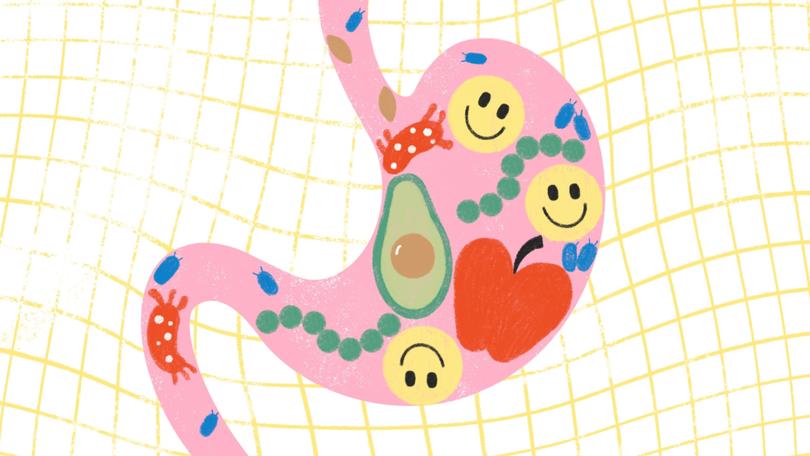Sarah Di Lorenzo: The gut-brain relationship is key when it comes to stress
Mental health is intrinsically linked to our diet choices.

Difficulty breathing, fatigue, chest pain, high blood pressure, indigestion, heartburn, insomnia, muscle aches, headaches and panic attacks are all symptoms of stress.
The impact of stress goes beyond this and impacts our gut health as well.
It is estimated 44 per cent of people with irritable bowel syndrome have anxiety.
Sign up to The Nightly's newsletters.
Get the first look at the digital newspaper, curated daily stories and breaking headlines delivered to your inbox.
By continuing you agree to our Terms and Privacy Policy.Functional gastrointestinal disorders in general affect up to 70 per cent of the adult population at some time in their life. It is a really interesting fact and one which gives you an idea of how real the gut and stress link really is.
Stress can really trigger gastrointestinal symptoms.
So why does stress cause digestive problems? When humans are in flight or fight triggered by stress — whether it be work deadlines, family and personal relationships or financial matters — our digestion slows down or can even stop so they body can divert the energy to protecting themselves or managing the threat.

When the stress is not as intense as with a direct threat — like going for an interview or public speaking — the digestive process can be disrupted and symptoms are usually abdominal pain or diarrhoea.
But this can also work in reverse. People who have constant digestive problems such as excessive bloating, flatulence and diarrhoea (which would be caused by food intolerance, coeliac, lactose intolerance, leaky gut syndrome, parasites, bacterial overgrowth, gastro esophageal reflux disorder or digestion can cause of stress and anxiety.
To expand further our enteric nervous system helps regulate our digestion. Our autonomic nervous system regulates functions we are not aware of such as our heartbeat, breathing, body temperature and blood pressure.
Nerves from all our organs are connected to our brain through an extensive network. Our sympathetic nervous system is the fight or flight response and our parasympathetic nervous system calms after the danger passes. So you can see how everything is connected and why the gut-brain axis is so strong.
This brings me to the bacteria in our gut. Our gut microbiome is made of trillions of organisms including bacteria, fungi and viruses. Bacteria make up 95 per cent of our microbiota and there is around 2kg in each of us.
Our microbiome is the foundation of our overall health and wellness, influencing everything from skin, metabolism, immunity, heart, weight, sleep, digestion, cognition, mental clarity and stress. Research into the gut bacteria shows there are certain bacteria such as lactobacillus and bifidobacterium that can lower depression and anxiety.
Something else to consider is that 95 per cent of our serotonin, the feel-good mood-stabilising neurotransmitter, is produced in our gut.
So what are the worst foods for our gut? Processed meats, refined sugar, gluten, fried foods, high fat foods, red meat, artificial sweeteners, alcohol and processed foods that are full of additives and preservatives
The best foods for our gut include diversity and abundance of fruit and vegetables, whole grains, nuts, seeds, legumes, good fats and fermented foods. Lots of probiotic rich foods like sauerkraut, kimchi, tempeh, tofu, yoghurt, kefir and miso as well to deliver wonderful prebiotic rich foods such as asparagus, banana, oats, leek, garlic, onion, jerusalem artichokes and apples.
The result of a diet rich in probiotic and prebiotic foods is postbiotics such as short chain fatty acids, especially butyrate, that are wonderful for our overall health and support our gut lining. Exercise, good intake of water, sleep and stress management techniques are also essential.for that overall and holistic and comprehensive approach to health and wellness.

